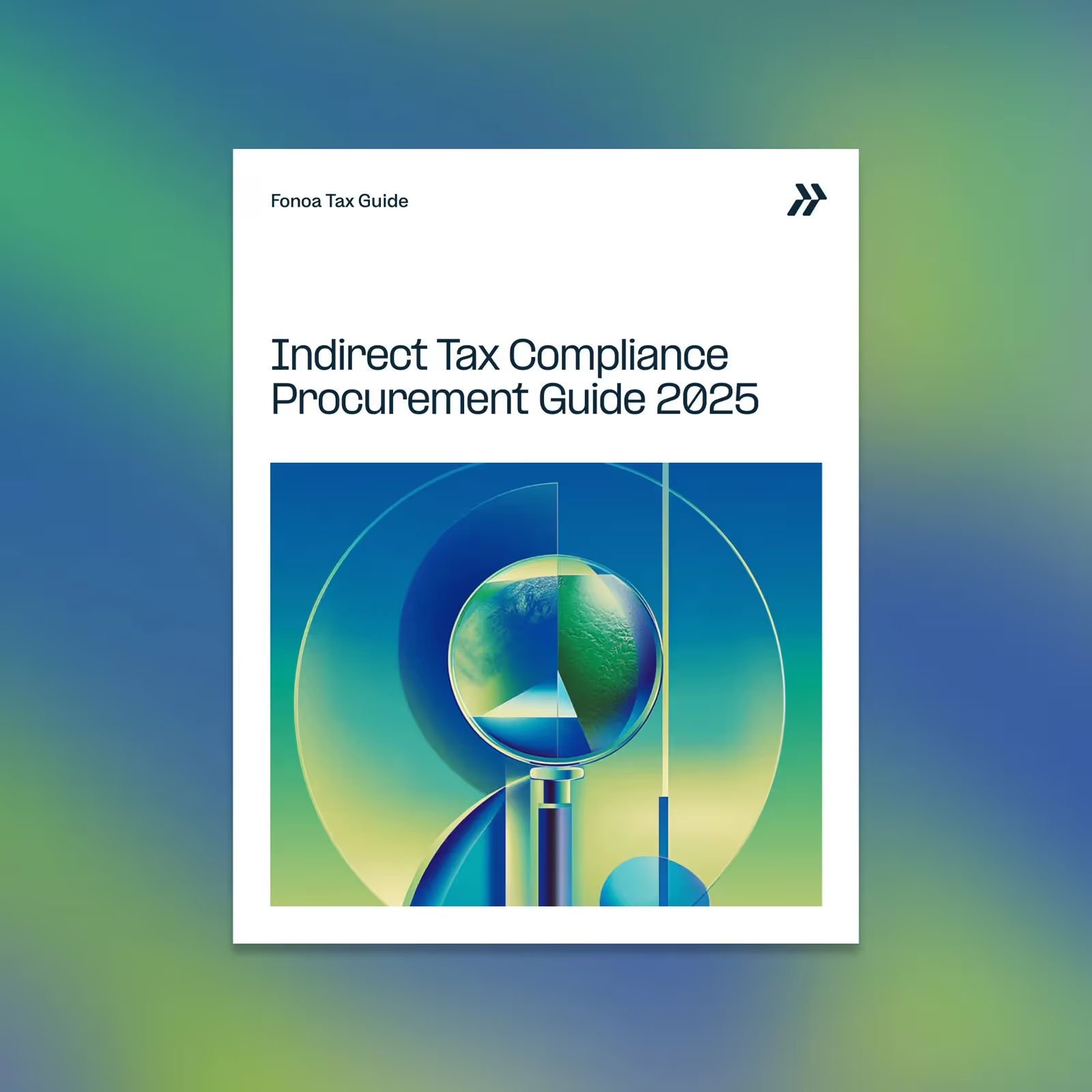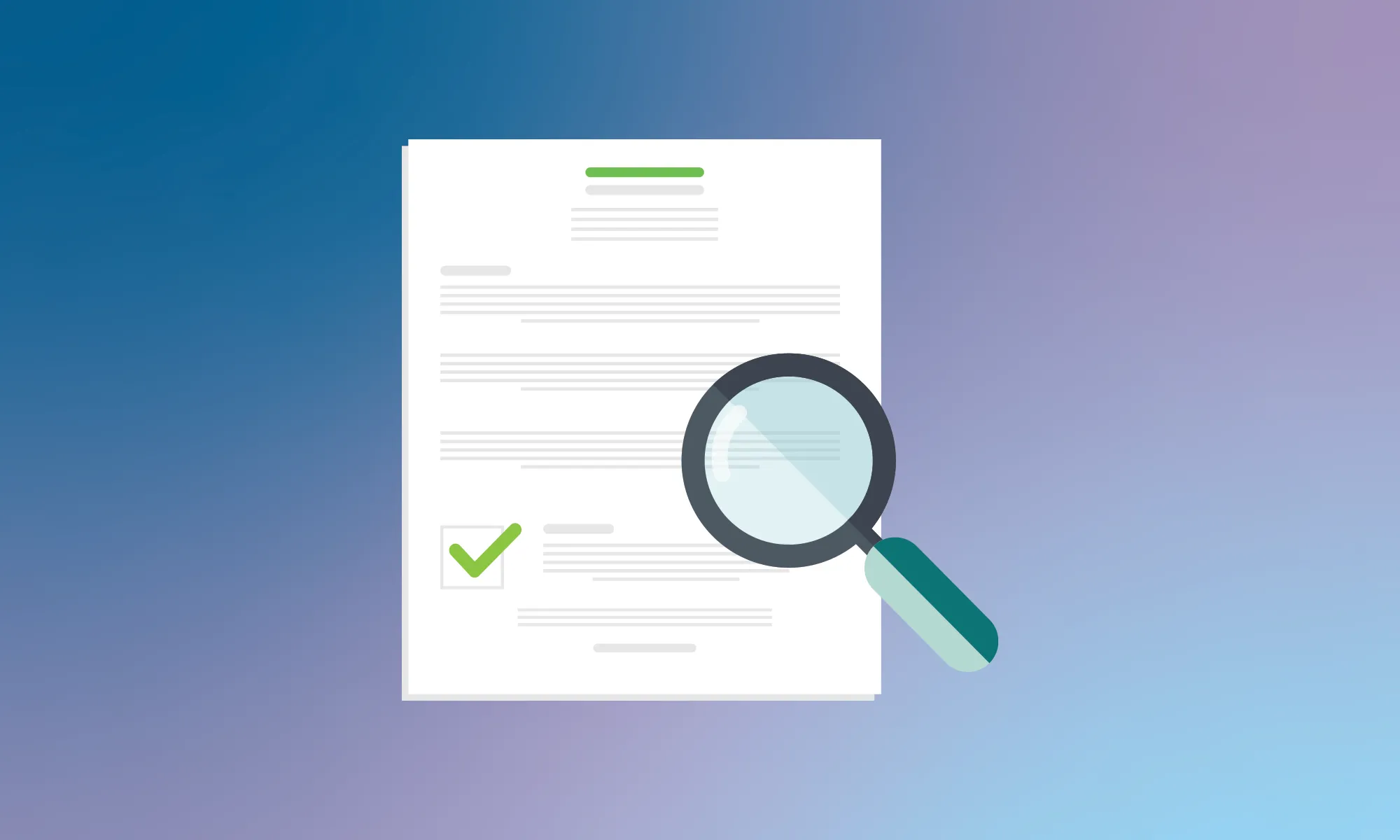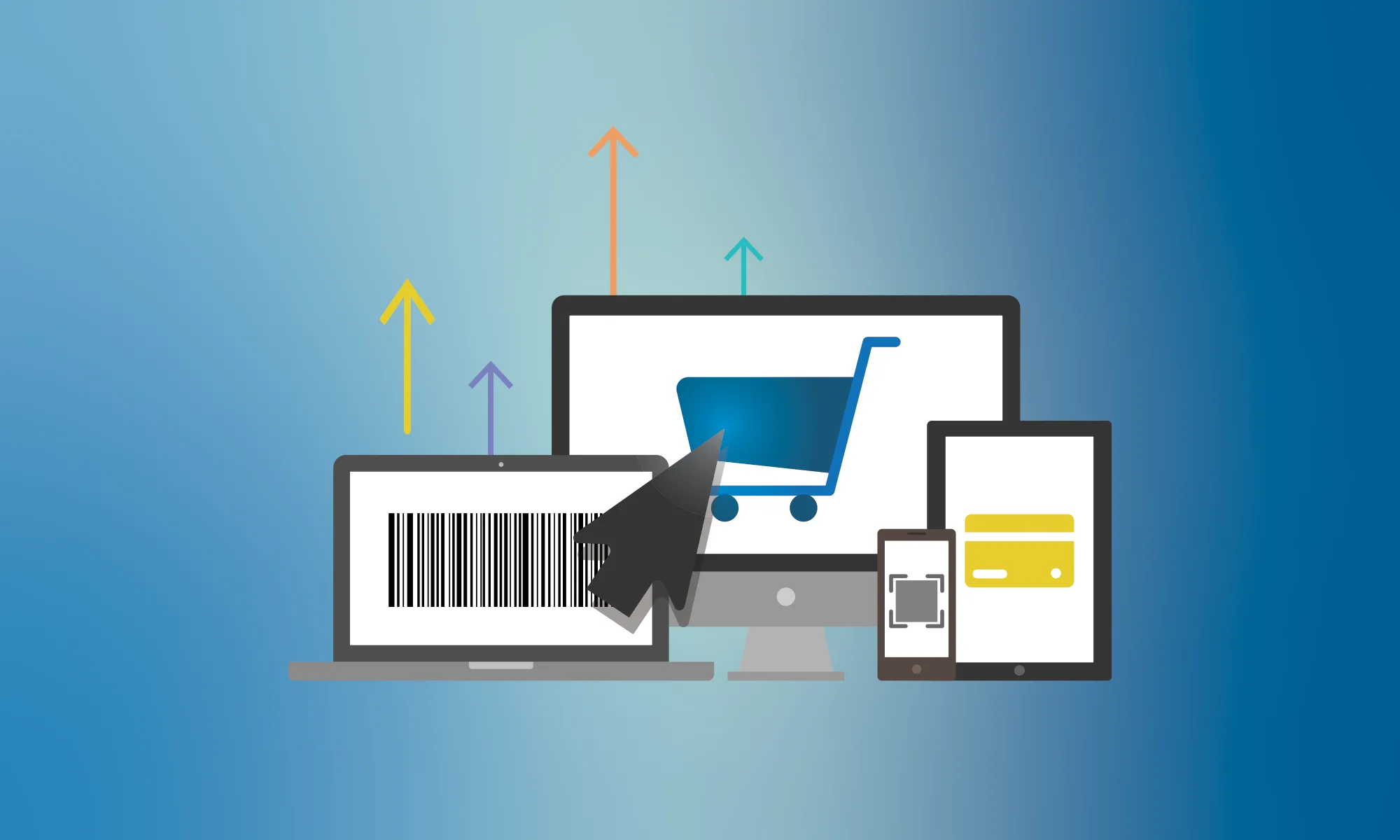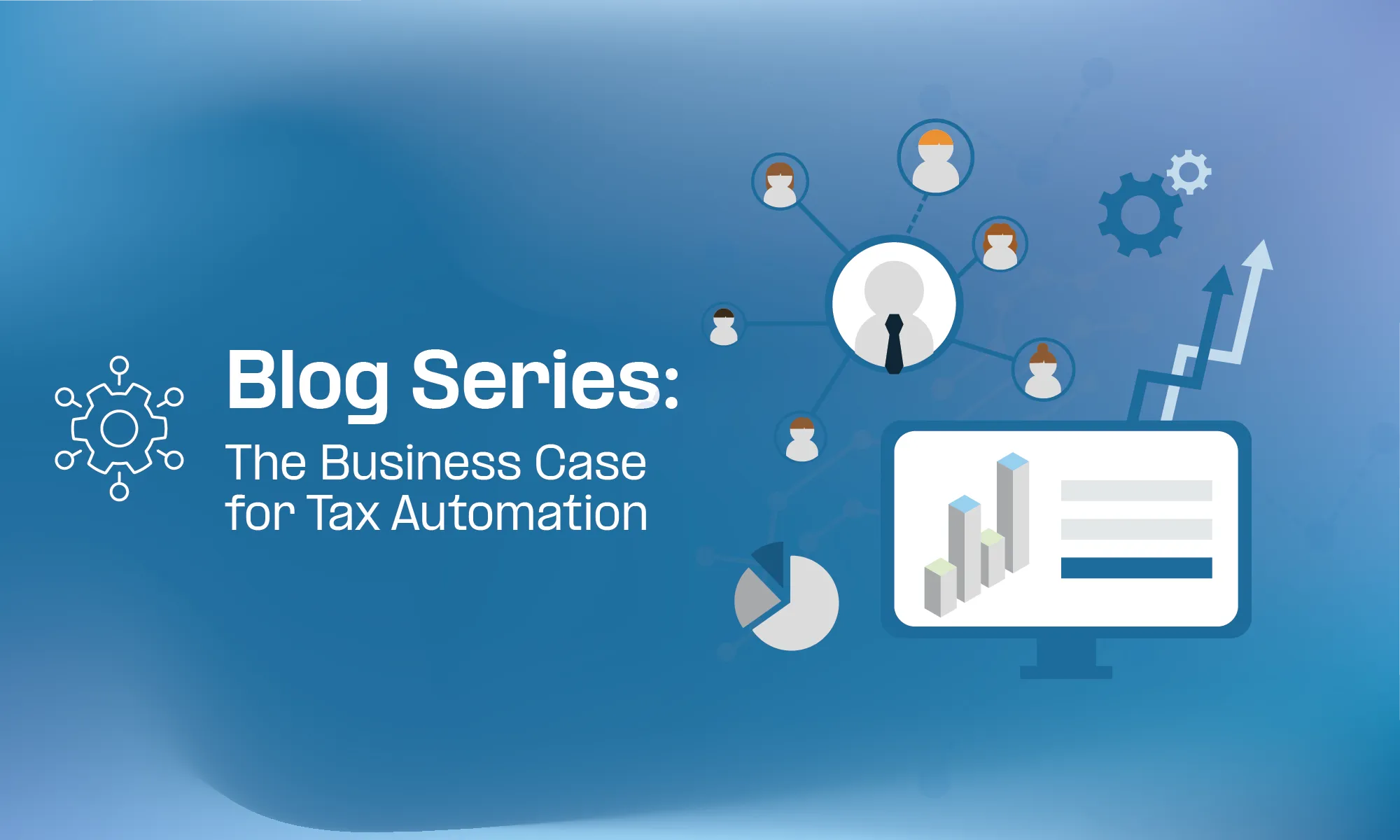Navigating E-Invoicing in Malaysia: Insights from Fonoa’s in-house tax team
Malaysia’s tax landscape has recently undergone a significant transformation with the introduction of a phased implementation of e-Invoicing, spearheaded by the Inland Revenue Board of Malaysia (LHDNM) through its MyInvois system.
This guide aims to provide insights to inform taxpayers of the obligations and intricacies of the e-invoicing mandate.
Taxpayer Scope:
All taxpayers engaged in commercial activities in Malaysia must issue e-Invoices, following the phased mandatory implementation timeline.
Note: The requirement to issue e-Invoices extends beyond domestic transactions within Malaysia and applies to cross-border transactions (Imports and exports).
There are some exemptions from implementing e-Invoicing, among others Governmental agencies and micro taxpayers (Taxpayers with an annual turnover or revenue of less than RM150,000). Nonetheless, the LHDN encourages the individuals mentioned above to adopt e-Invoicing, supporting the Government's digital initiative. The full list of exemptions is available in the E-invoicing guideline (section 1.6)
Timeline:
What is E-Invoicing in Malaysia?
An e-invoice digitally represents a transaction between a supplier and a buyer, replacing traditional paper for electronic formats of invoices, credit notes, and debit notes. It is a file created in the format specified by the IRBM (i.e., in XML or JSON file format) and not in the form of PDF, JPG etc.
The new Malaysian e-invoice captures all the critical details found in conventional documents, including supplier and buyer information, item descriptions, quantities, unit prices, taxes, and total amounts.
Malaysia’s model adopts “Clearance” Continuous Transaction Control (CTC), ensuring near real-time validation via two transmission mechanisms:
- MyInvois Portal: A manual free-to-use option for taxpayers.
- API Integration: enabling direct system connectivity.
Taxpayers may use either or both transmission mechanisms to transmit e-Invoices, as long as there is no duplication of e-Invoices.
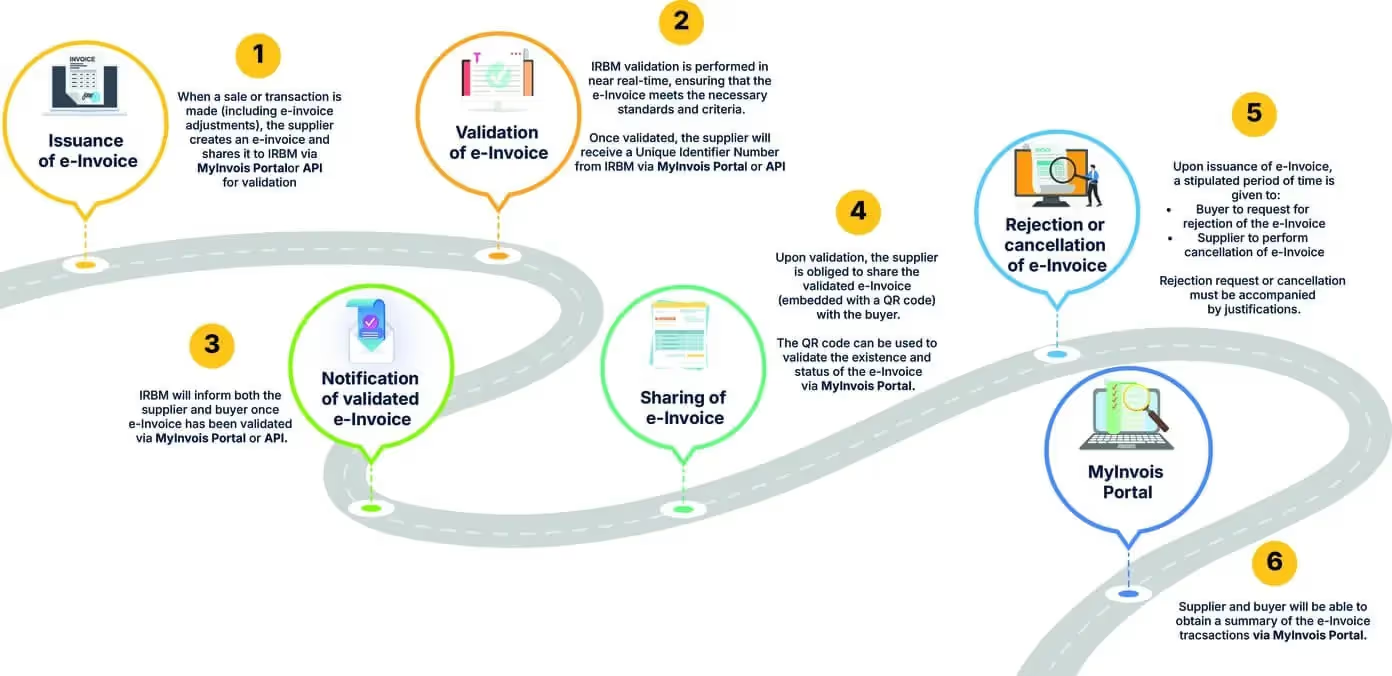
Outsourcing to third parties
For taxpayers not currently using any system for invoicing purposes, it is permitted to explore options provided by third-party service providers. These providers can assist in facilitating the adoption and implementation of e-Invoicing by offering tailored solutions and support. There is no registration or certification requirement for technology providers to participate in the implementation of the CTC e-Invoice solution in Malaysia. However, providers must ensure the functionality and reliability of their API integration with the Inland Revenue Board of Malaysia (IRBM). This requirement may evolve, so it is recommended to regularly check IRBM’s Official Portal for updates.
Preparing for Implementation
When implementing e-Invoice, Fonoa recommends that the three primary factors to be considered are:

Note: The Malaysian government has introduced tax incentives to support the implementation of e-Invoicing as part of Budget 2024. Micro, Small, and Medium Enterprises (MSMEs) can claim a tax deduction of up to RM50,000 per year of assessment on environmental, social, and governance-related expenses, including consultation fees for e-Invoice implementation. This incentive is available from the year of assessment 2024 to 2027.
Easing the Path to Compliance
LHDN has provided some leniencies for taxpayers when adjusting their processes to conform with e-invoicing.
During the interim relaxation period, taxpayers are permitted to:
- Issue Consolidated e-Invoices: Covering all activities and transactions, including cases requiring individual e-Invoices, as specified in Section 3.7 of the e-Invoice Specific Guideline (e.g., automotive and aviation sales).
- Issue Consolidated Self-Billed e-Invoices: For situations listed in Section 8.3 of the guideline, where the Buyer is responsible for issuing self-billed e-Invoices.
- Provide Flexible Product/Service Descriptions: Include any relevant details in the “Description of Product or Service” field of consolidated invoices, not limited to specific references like receipt or bill numbers.
- Avoid Issuing Individual e-Invoices or Self-Billed e-Invoices: Even if requested by Buyers or suppliers, as long as consolidated invoices are issued in accordance with the guidelines. Category Interim Relaxation Period Taxpayers with an annual turnover or revenue of more than RM100 millionAugust 1, 2024 to January 31, 2025 Taxpayers with an annual turnover or revenue of more than RM25 million and up to RM100 millionJanuary 1, 2025 to June 30, 2025 All other taxpayersJuly 1, 2025 to December 31, 2025
Tackling Common Challenges in Malaysia’s E-Invoicing Implementation
For global businesses venturing into Malaysia’s e-invoicing landscape, a few key challenges often arise:
- Getting Accurate Buyer Information (TINs): One of the primary issues is ensuring the accuracy of buyer details, particularly Tax Identification Numbers (TINs). Incorrect or incomplete buyer data can lead to submission errors, so it's crucial to have reliable processes in place for collecting and verifying this information.
- Adapting Billing and ERP Systems: Many companies find that their current billing and ERP systems need adjustments to integrate smoothly with Malaysia’s e-invoicing system. This involves not just technical changes but also testing and troubleshooting to ensure invoices are generated and sent in the correct format without disrupting day-to-day operations.
- Handling B2C Transactions Correctly: Differentiating between B2B and B2C transactions can be tricky. For B2C transactions, businesses need to ensure they’re capturing and reporting all the necessary information accurately, which might require changes to existing reporting processes.
- Managing Cross-Border Transaction Challenges: Cross-border transactions, especially those involving self-billing, add another layer of complexity. Companies must navigate different tax rules and ensure proper documentation is in place to handle these transactions without issues.
By addressing these hurdles proactively, businesses can simplify their transition to e-invoicing in Malaysia, ensuring compliance and contributing to the broader push toward digital transformation.
Opportunities with Fonoa E-Invoicing
Fonoa has seamlessly integrated Malaysia’s e-invoicing requirements into its standard e-invoicing product, providing a streamlined solution for businesses. By using Fonoa’s platform, users can benefit from:
- Single API Integration: Handle all document types, including B2C and self-billing, through one unified API.
- CSV and Batch Uploads: Easily manage large volumes of invoices with CSV uploads and batch processing capabilities.
- Customizable PDF Templates: Generate visually appealing and tailored PDF invoices to meet specific branding or formatting needs.
- Support for E-commerce, Marketplaces, and Platform Economies: Ensure compliance for various business models, including those operating in the digital and platform economy.
Existing Fonoa clients can quickly extend their compliance efforts to Malaysia, leveraging the same integration methods they use in other regions, ensuring a consistent and efficient e-invoicing process.
The Road Ahead
With over 64.5 million e-invoices submitted to date (Nov 2024), the Malaysian MyInvois system is driving compliance and digitalization across Malaysia. By leveraging available resources and acting early, businesses can turn compliance into a strategic advantage.This number will only increase as the number of in scope businesses increases.



